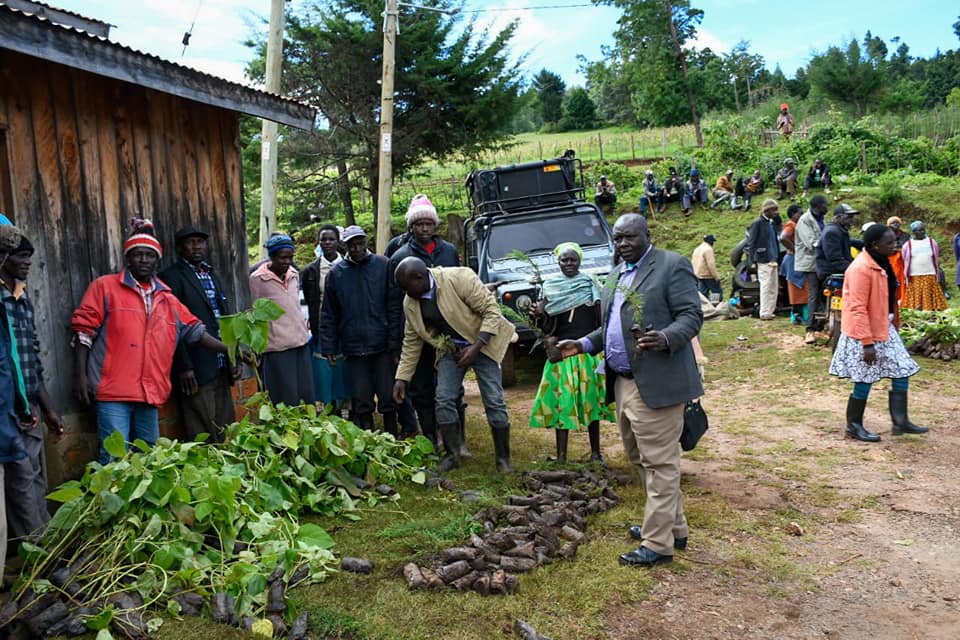Livestock farmers in Nyandarua have been warned to be wary of the deadly animal bloat that mostly affects cattle, goats and sheep as the rainy season ensues in the county.
The digestive disorder is known to occur in livestock that have been grazed on green, lush, sprouting legumes such as lucerne and some grass family plants such as wheat could be marked by accumulation of gas in the rumen, reduced appetite and reduction in milk production in dairy animals.
An instructor at the Nyahururu Animal Health and Industry Training Institute (AHITI) Mr. Michael Kahiro said that the indigestion results from the retention of gases that are normally eliminated through belching which poses a threat to the life of the animal.
“The trapped gases in the system form a foam-like substance in the rumen that further prevents the elimination of gases from the digestive tract. This, if left unattended to, can lead to the death of the animal by asphyxiation,” said Kahiro.
“There are two types of bloating that occur in livestock, one is secondary bloating that results from an obstruction of the oesophagus hindering the release of gases produced during digestion, the other, primary bloating is caused by ingested high protein without sufficient roughages and both can worsen resulting in the insertion of a tube through the animal’s mouth to assist in the removal of the gases,” Kahiro added.
Joseph Mwangi, a dairy farmer in Mairo Inya, Nyandarua County said that he has had to set up long term measures to prevent the occurrence of bloating with his herd because in most cases, it affects the best animals in the herd and sets them back in a time when there is a larger variety of pasture to graze on.
“I always ensure that I have dry feeds such as hay incorporated into my animals’ feeding schedule such as during the night so as to complement the lush feeds the animals eat during the day’s grazing,” he said.
“Some of the animals also tend to reject the feeds we give them in attempts to provide a roughage rich diet so we have to keep stop-bloat medications at hand in the event that a case of bloating occurs,” Mwangi added.
Other lush pasture related diseases that pose a risk on livestock are pulpy kidney and grass tetany, the former, unlike bloating, has vaccines in the market that offer protection to the animals for a six month period.



